İSTANBUL CONVENTION SAVES LIVES
Withdrawal from İstanbul Convention: CHP offers legal aid for appeals
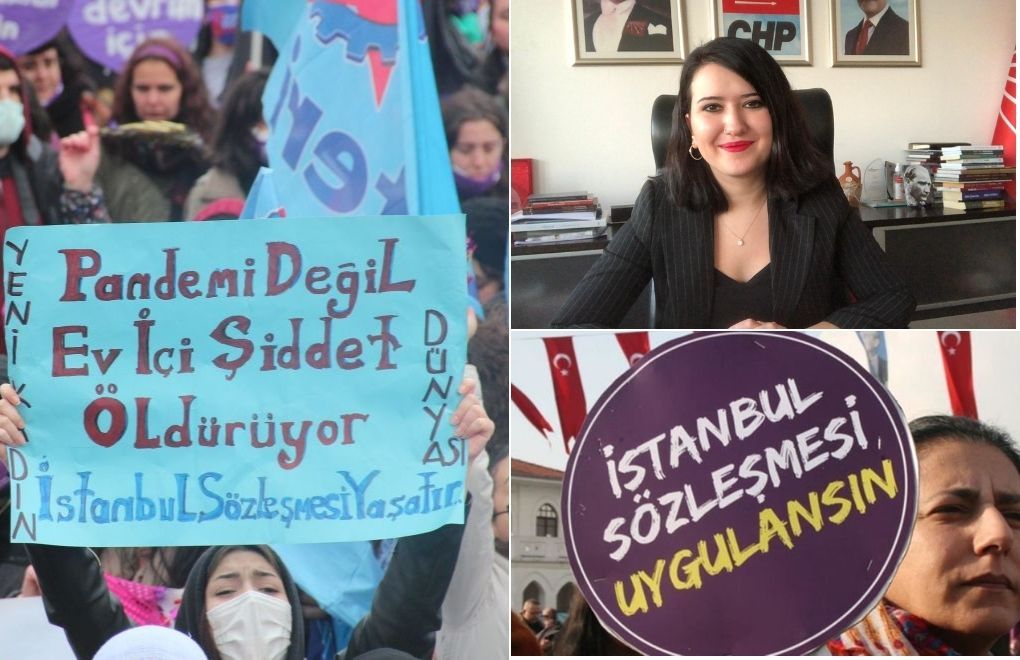
Click to read the article in Turkish
"We will pursue all legal remedies against this decision. We will both appeal to the Council of State ourselves and give legal assistance to those who want to file a lawsuit, if they need such assistance.
"The will of the Grand National Assembly of Turkey and the right to life of 42 million women cannot be sacrificed for the sake of one man's desire and the reactionist attitude of some communities."
It is Gökçe Gökçen, the Vice Chair of the Republican People's Party (CHP), who slams Turkey's decision to withdraw from İstanbul Convention.
Speaking to bianet about the issue, Gökçen says that they, as the main opposition party, do not recognize the withdrawal from the İstanbul Convention and underlines that they will raise their objections to this decision through both legal and political channels.
CLICK - Turkey has withdrawn from İstanbul Convention
In a Presidential decision issued by ruling Justice and Development Party (AKP) Chair Recep Tayyip Erdoğan on March 19, 2021 and published in the Official Gazette at midnight, Turkey has withdrawn from the Council of Europe Convention on Preventing and Combating Violence against Women and Domestic Violence - or the İstanbul Convention.
'We will implement it, if they don't'
"The meaning of İstanbul Convention for us is not only about the protection of women, children and LGBTI+s from all types of violence; the Convention is also a guarantee for a dignified life based on gender equality," CHP's Gökçen says, briefly adding the following:
"Therefore, we will take all steps that will empower women. We will tell our citizens all across Turkey about the İstanbul Convention and the one man's betrayal of women. We will ensure equal representation of women in politics and socialize our legislative proposal that we drafted in the light of civil society's views. We will take steps to empower women economically.
"With our 'YaşamHak' (LifeRight) project, we will provide every single woman subjected to violence with psychological and legal support.
"Women's rightful outrage and pursuit of democratic rights will now be too close for comfort for the pro-palace ones at the Grand National Assembly of Turkey. Developing family support insurance, we will introduce an understanding of a social state that will empower women.
"When we come to power, we will bring the İstanbul Convention back. Until that day, we will use our all powers to put the content of the Convention into practice. If they do not implement it, we will do it and we will be in solidarity and closer contact with women's organizations."
CLICK - A sample petition to Council of State
'Streets are our sites of struggle as well'
Referring to the state's attitude, CHP's Gökçen says, "If a woman claiming her rights in a trial, a woman detained for defending her right to life on the street while murderers are free outside and a woman wanting to learn her rights, but left uneducated turns to the state, but the state turns its back on them, our MPs must be on the side of every single woman."
According to Gökçen, everywhere where there are women, from the squares to streets and to the Parliament, is now a site of struggle.
She says that women's resistance will also grow more and more at the Parliament. "In the face of those who say, 'I will not protect women's lives', it is our duty to reunite the İstanbul Convention with people and reclaim all acquired human rights," underlines the politician.
'Defending human rights, defending our lives'
Underlining the importance of defending human rights, CHP Vice Chair Gökçe Gökçem concludes her remarks briefly as follows:
"We will support the CEDAW, which forbids discrimination against women, and the Lanzarote, which prevents child abuse, to the end; we will suppoty humanity in the face of this horrible darkness faced by every child who cannot raise his or her voice. Defending human rights means defending our lives. We will protect these conventions like defending our lives.
"We, as women, do not feel safe in this country. We do not want to lose even a single more friend of ours, we do not want to hear even a single more disgusting defense about a suspicious death.
"We know that if we will live here, this life itself is a struggle, but if we cannot spread this struggle with everything in our power and if we cannot turn the women's outrage today into a struggle, none of us is safe.
"In the face of all attacks on our lives and one men, we are very powerful as millions of women. And, whether they want it or not, we will win.
"I, as a woman, would like to extend my most heartfelt thanks to all women who have reminded me and millions of other women like me of this power and give us the strength to stand up again in the face of every discrimination we face. You are never alone, you will never be alone."
About İstanbul Convention
* Source: CoE The Council of Europe (CoE) "Convention on Preventing and Combating Violence Against Women and Domestic Violence", also known as "İstanbul Convention", is based on the understanding that violence against women is a form of gender-based violence that is committed against women because they are women. It is the obligation of the state to fully address it in all its forms and to take measures to prevent violence against women, protect its victims and prosecute the perpetrators. As of March 2019, it has been signed by 45 countries and the European Union (EU). On March 12, 2012, Turkey became the first country to ratify the Convention, followed by 33 other countries from 2013 to 2019 (Albania, Andorra, Austria, Belgium, Bosnia and Herzegovina, Croatia, Cyprus, Denmark, Finland, Estonia, France, Georgia, Germany, Greece, Iceland, Ireland, Italy, Luxembourg, Malta, Monaco, Montenegro, the Netherlands, Norway, North Macedonia, Poland, Romania, Portugal, San Marino, Serbia, Slovenia, Spain, Sweden, Switzerland). The Convention came into force on 1 August 2014. * Click here to read the full convention |
From İstanbul ConventionThe purposes, definitions and general obligations of the İstanbul Convention have been indicated in its first chapter of the as follows: Chapter I – Purposes, definitions, equality and non-discrimination, general obligations Article 1 – Purposes of the Convention The purposes of this Convention are to: a) protect women against all forms of violence, and prevent, prosecute and eliminate violence against women and domestic violence; b) contribute to the elimination of all forms of discrimination against women and promote substantive equality between women and men, including by empowering women; c) design a comprehensive framework, policies and measures for the protection of and assistance to all victims of violence against women and domestic violence; d) promote international co-operation with a view to eliminating violence against women and domestic violence; e) provide support and assistance to organisations and law enforcement agencies to effectively co-operate in order to adopt an integrated approach to eliminating violence against women and domestic violence. In order to ensure effective implementation of its provisions by the Parties, this Convention establishes a specific monitoring mechanism. Article 2 – Scope of the Convention This Convention shall apply to all forms of violence against women, including domestic violence, which affects women disproportionately. Parties are encouraged to apply this Convention to all victims of domestic violence. Parties shall pay particular attention to women victims of gender-based violence in implementing the provisions of this Convention. This Convention shall apply in times of peace and in situations of armed conflict. Article 3 – Definitions For the purpose of this Convention: a) "violence against women" is understood as a violation of human rights and a form of discrimination against women and shall mean all acts of gender-based violence that result in, or are likely to result in, physical, sexual, psychological or economic harm or suffering to women, including threats of such acts, coercion or arbitrary deprivation of liberty, whether occurring in public or in private life; b) "domestic violence" shall mean all acts of physical, sexual, psychological or economic violence that occur within the family or domestic unit or between former or current spouses or partners, whether or not the perpetrator shares or has shared the same residence with the victim; c) "gender" shall mean the socially constructed roles, behaviours, activities and attributes that a given society considers appropriate for women and men; d) "gender-based violence against women" shall mean violence that is directed against a woman because she is a woman or that affects women disproportionately; e) "victim" shall mean any natural person who is subject to the conduct specified in points a and b; f) "women" includes girls under the age of 18. Article 4 – Fundamental rights, equality and non-discrimination Parties shall take the necessary legislative and other measures to promote and protect the right for everyone, particularly women, to live free from violence in both the public and the private sphere. Parties condemn all forms of discrimination against women and take, without delay, the necessary legislative and other measures to prevent it, in particular by: –embodying in their national constitutions or other appropriate legislation the principle of equality between women and men and ensuring the practical realisation of this principle; –prohibiting discrimination against women, including through the use of sanctions, where appropriate; –abolishing laws and practices which discriminate against women. The implementation of the provisions of this Convention by the Parties, in particular measures to protect the rights of victims, shall be secured without discrimination on any ground such as sex, gender, race, colour, language, religion, political or other opinion, national or social origin, association with a national minority, property, birth, sexual orientation, gender identity, age, state of health, disability, marital status, migrant or refugee status, or other status. Special measures that are necessary to prevent and protect women from gender-based violence shall not be considered discrimination under the terms of this Convention. Article 5 – State obligations and due diligence Parties shall refrain from engaging in any act of violence against women and ensure that State authorities, officials, agents, institutions and other actors acting on behalf of the State act in conformity with this obligation. Parties shall take the necessary legislative and other measures to exercise due diligence to prevent, investigate, punish and provide reparation for acts of violence covered by the scope of this Convention that are perpetrated by non-State actors. Article 6 – Gender-sensitive policies Parties shall undertake to include a gender perspective in the implementation and evaluation of the impact of the provisions of this Convention and to promote and effectively implement policies of equality between women and men and the empowerment of women. |
(EMK/SD)
MALE VIOLENCE MONITORING REPORT JANUARY 2025
Men killed 28 women in January
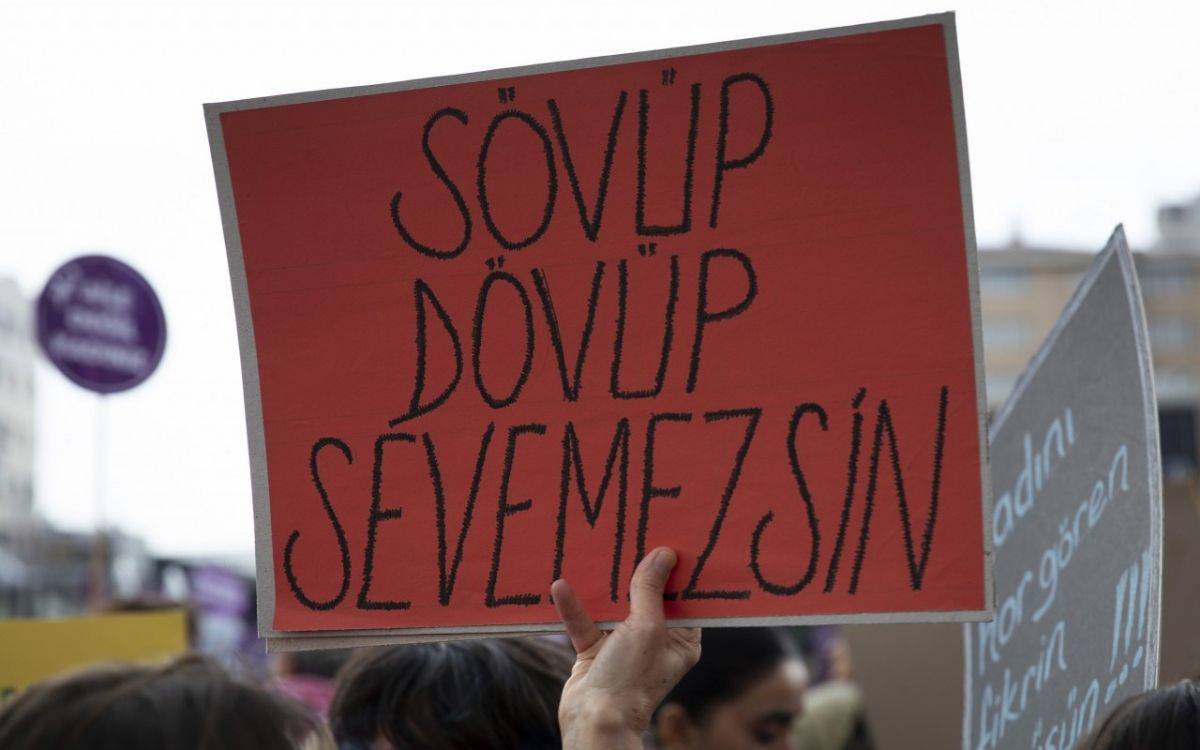
SES Women of the Year awards announced, bianet among recipients
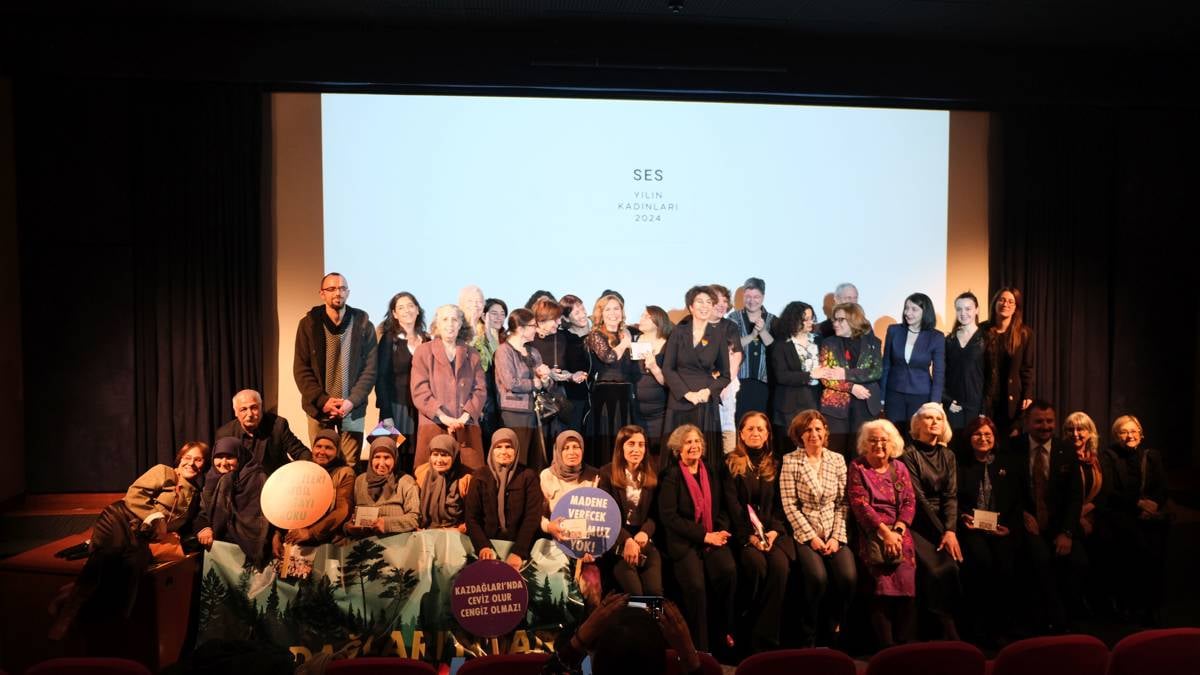
Men killed at least 378 women in 2024
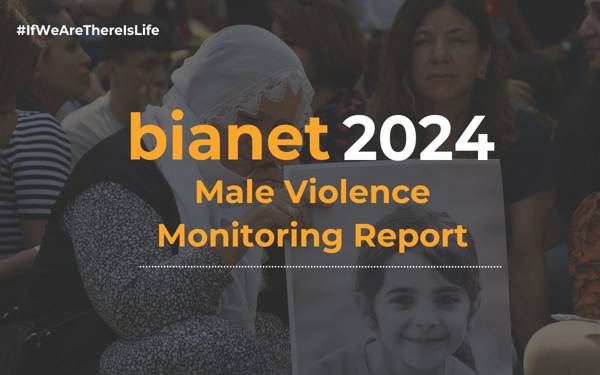
MALE VIOLENCE MONITORING REPORT NOVEMBER 2024
Men killed 32 women in November
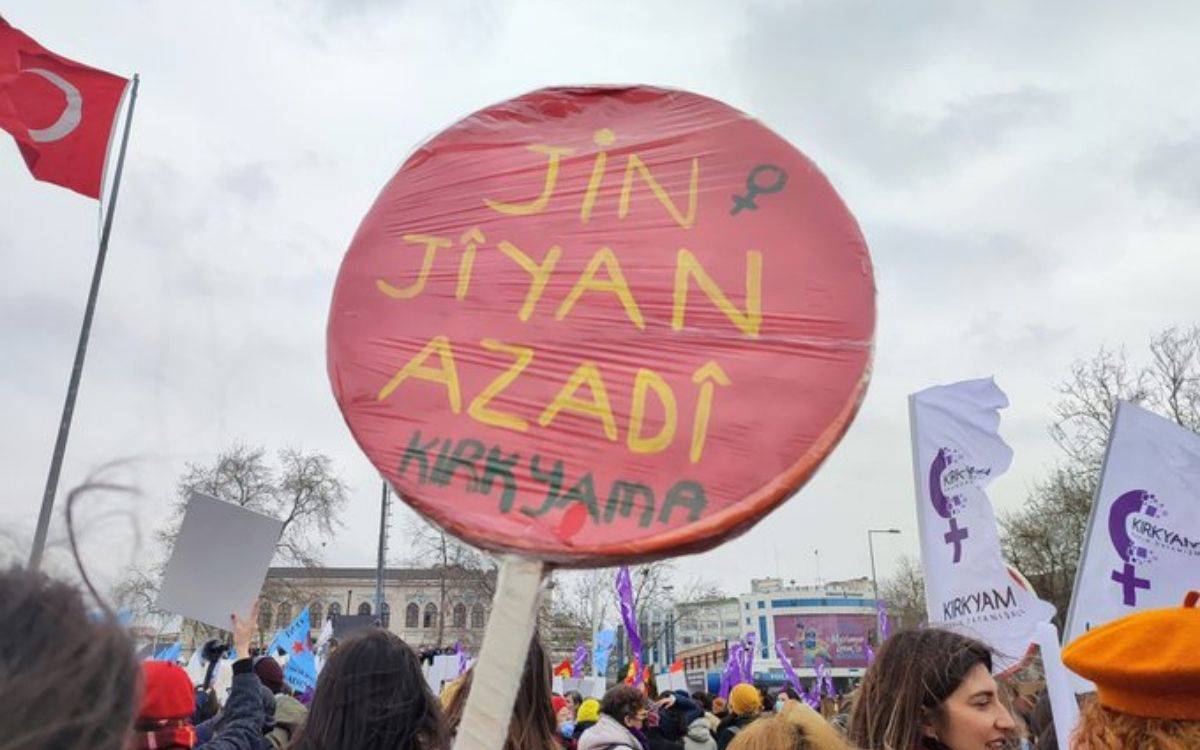
Nearly 200 detained as women attempt anti-violence protest in İstanbul
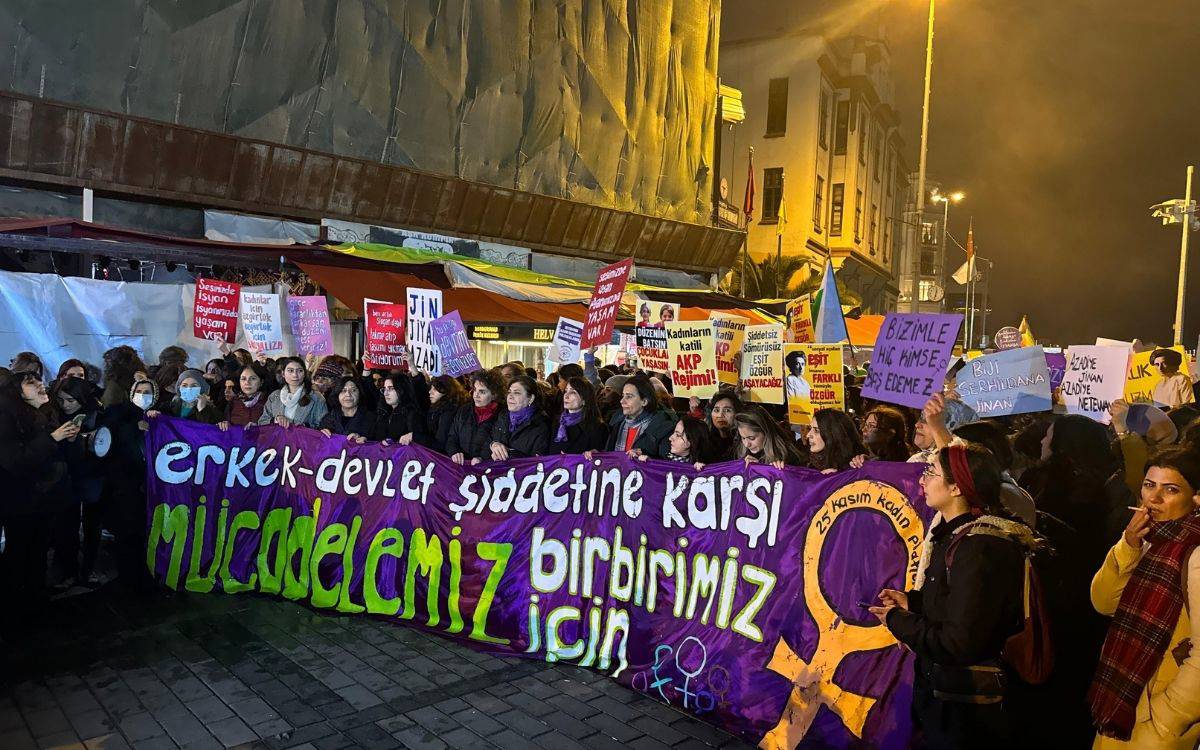






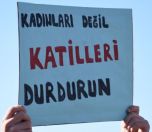

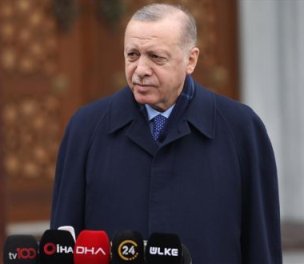
sa.jpg)



